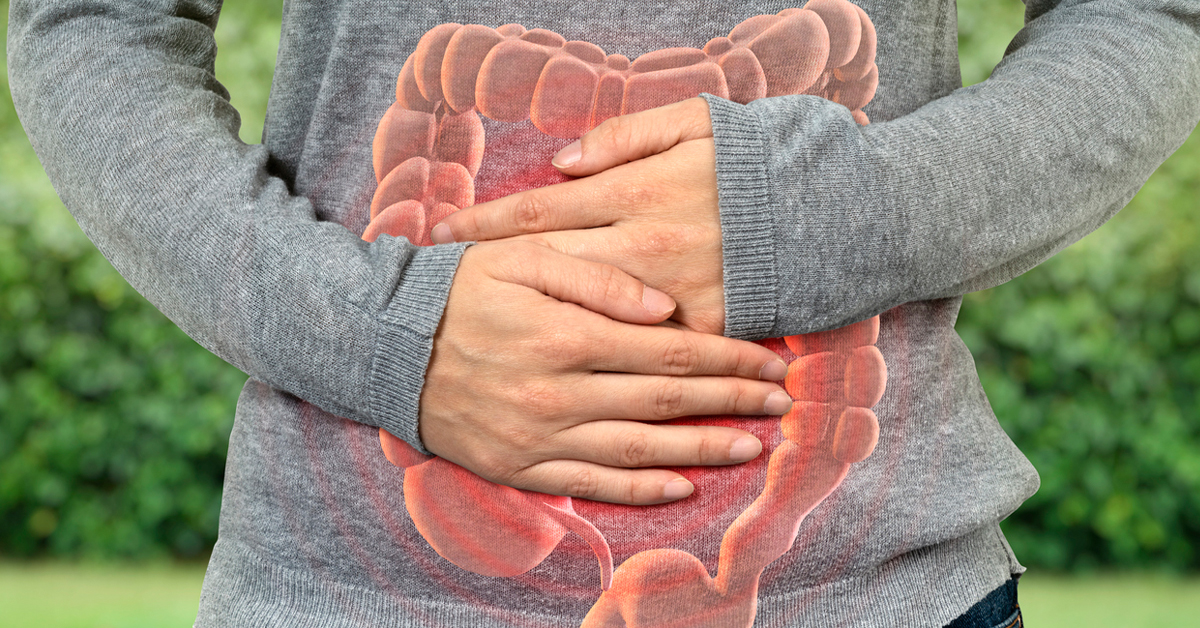Ulcerative colitis is a type of inflammatory bowel disease (IBD) that causes ulcers, sores, and inflammation in the lining of the large intestine (colon). Ulcerative colitis is a chronic disease that can be debilitating and lead to more serious and life-threatening conditions. However, regular treatment can help significantly improve symptoms and prevent future flare-ups.
Ulcerative Colitis Basics
Ulcerative colitis occurs when your immune system makes a mistake. Your immune system usually protects your body by attacking invaders like bacteria and viruses. When you have ulcerative colitis, your immune system mistakes food, good gut bacteria, and the cells that line your colon for intruders and attacks them. The white blood cells that are usually protecting your body begin attacking the lining of your colon, causing inflammation and ulcers.
What Causes Ulcerative Colitis
Doctors aren’t certain why people get ulcerative colitis, but your genetics may play a role in developing the disease. The following are some conditions that can affect your chances of getting ulcerative colitis:
- Age: You are more likely to develop ulcerative colitis between 15 and 30 years old and after 60.
- Ethnicity: The risk of developing ulcerative colitis are higher in individuals of Ashkenazi Jewish descent.
- Family History: If you have a close relative with the condition, your chances of developing ulcerative colitis are 30% higher.
Additionally, although diet and stress don’t cause ulcerative colitis on their own, they could become triggers for symptom flare-ups.
Ulcerative Colitis Symptoms
Ulcerative colitis symptoms may vary depending on the extent of the inflammation and its exact location. The most common signs and symptoms include:
- Diarrhea, often with blood or pus
- Abdominal pain and cramping
- Rectal pain
- Rectal bleeding — passing a small amount of blood with stool
- Urgency to defecate
- Inability to defecate despite urgency
- Weight loss
- Fatigue
- Fever
When to See a Doctor
Ulcerative colitis is a serious disease that can develop into a life-threatening condition if not treated appropriately. You should see a doctor if you experience a persistent change in your bowel movements and if you have the following symptoms:
- Abdominal pain
- Blood in your stool
- Ongoing diarrhea that doesn’t respond to over-the-counter medications
- Diarrhea that wakes you from your sleep
- An unexplained fever lasting more than two days
Ulcerative Colitis Treatment
Ulcerative colitis treatment predominantly focuses on improving symptoms, letting your colon a chance to heal, and preventing further flare-ups. Sometimes a combination of diet, medication, and surgery is necessary to treat ulcerative colitis effectively. The following are some of the most common treatment options:
- Diet: Avoiding trigger foods, favoring soft and bland foods
- Medication: Antibiotics, Aminosalicylates, Corticosteroids, Immunomodulators, Loperamide
- Surgery: If other methods don’t work, you may need surgery to remove your colon
It’s important to understand your options for ulcerative colitis treatments, and UAB Medical West is here to help you along the way.
UAB Medical West Cares About Your Digestive Health
Staying on top of your ulcerative colitis is essential for preventing flare-ups and your overall intestinal health. There are many available treatment options for ulcerative colitis, and UAB Medical West is here to help you with your decision-making. Schedule an appointment with us today – in Hueytown, Hoover, Bessemer, McCalla, and Vance.
